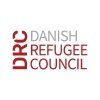Need Assessment & Training Curriculum Development UCA Consul
TERMS OF REFERENCE
Consultancy to conduct participatory need assessment and to develop training curriculum for upper level managers, and key rehabilitation professionals (Physiotherapists, Occupational Therapists, and Social workers) of 9 rehabilitation centers members of the User Centred Approach steering committee (UCA SC).
Under the projects: Multi-stakeholder Initiatives Towards more Effective Response to Persons with Disabilities Needs, and Demands in the State of Palestine
1-CONTEXT
Given the many restrictions on its physical and economic means, the unstable political situation and a lack of centralized political authority, the Palestinian National Authority (PNA) has only very limited capacity to deliver social services or enforce existing legislation. This affects the estimated 308,000 persons with disabilities (PWDs) living in the State of Palestine disproportionately, limiting their scarce access to benefits and basic services. In the Gaza Strip, controlled by the de facto authorities and out of any influence by the PNA, ongoing conflict and poverty are steadily increasing the risk of disability and are having a negative impact on the availability, access, quality and sustainability of services. The situation has worsened since June 2007, as PWDs face even harsher consequences than the average population when confronted with the Government of Israel policy to enforce a blockade on the Gaza Israeli border and to strictly limit the movement of people and goods in and out of Gaza including for medical reasons.
Handicap International (HI) started its work in Palestine in 1996, and has been working continuously in the West Bank since that time and in the Gaza Strip since 2002. The proposed action builds on the experiences and lessons learned from the AC 3 project in the West Bank and on a number of access to services projects implemented in Gaza.
Since 2010, HI and its partners in West Bank have focused their action on improving the quality of services for PWDs by strengthening technical capacities of the rehabilitation workers, and by ensuring improved access to assistive devices. Handicap International also worked to improve access to accessible transportation options and information about existing rehabilitation services.
The proposed action builds on the AC3 project and also includes several new components: the support to existing CBR programs in the West Bank; the focus on local multi-stakeholder collaboration bringing together locales authorities, DPOs, service providers and other community organizations; and the strengthening of linkages with mainstream service providers through referral networks and pilot initiatives to improve PWDs access to services.
Description of the current situation of PWDs: needs and rights are inadequately met by service providers and civil society throughout the State of Palestine. While civil society stakeholders have been developing service provision capacities, the lack of regulatory frameworks have undermined their quality and impact. Moreover, according to the service providers themselves, they are unable to cover the needs of PWDs for support and specific services, while mainstream services fail to include PWDs. In this sense, key rights of PWDs as outlined in the CRPD remain unfulfilled.
The Gaza Strip and the West Bank present context-specific challenges and, as a consequence, require different intervention strategies and activities. However, there are common issues of concern for PWD in terms of quality, access and coordination of services, namely:
Limited coverage of the full population of PWD by the existing services;
Lack of technical capacity of rehabilitation service professionals on User Centered Approach (UCA) in centre policies and practices;
Weak coordination mechanisms and referral systems between rehabilitation services providers and other mainstream actors;
Lack of inclusive local initiatives aiming to improve PWDs access to mainstream services;
Lack of support for disability service providers to implement strategic and sustainable plans for rehabilitation programs;
Limited involvement of PWD families in rehabilitation;
Social stigma and lack of proper information on disability and rehabilitation opportunities.
The project will respond to these common challenges in the West Bank and the Gaza strip, however the proposed action will also focus on some specific issues and target groups in each territory that relate to the different contexts and development stages of disability service providers.
In West Bank, the project aims to develop a more effective response and mechanisms for people with all types of impairments. Through this project, rehabilitation centers and DPOs will be supported to consolidate their implementation of the User Centered Approach (UCA), and referral mechanisms will be improved. In two specific target governorates, existing community-based rehabilitation (CBR) services will be supported technically to develop their approaches in line with the 2010 WHO CBR guidelines. At the municipal level, in 3 targeted municipalities, the project will support the creation of multi-stakeholder working groups and the development and implementation of inclusive initiatives.
2. DESCRIPTION OF THE REQUIRED SERVICE PROVISION
Within the frame work of the current projects Multi-stakeholder Initiatives Towards more Effective Response to Persons with Disabilities Needs, and Demands in the State of Palestine a comprehensive need assessment will be conducted for 9 rehabilitation centers in the west bank (the User Centered Approach Steering Committee UCA SC) to highlight on the actual needs of the upper level managers and key rehabilitation professionals (Physiotherapists, Occupational Therapists, and Social workers) to improve their practices toward the user centered approach including concepts, principles, and intervention approaches. Upon the analysis of key findings of the need assessment a training curriculum contains 6 training modules for each the managers and the rehabilitation professionals will be developed to improve the level of user centered approach within the management policies, and the intervention approaches of the rehabilitation programs.
The training curriculum will focus on two levels 1.Training modules for upper level mangers 2.Training modules for key rehabilitation professionals (Physiotherapists, Occupational Therapists, and Social workers) this is to compile the improvement on both levels to support the transformation process of the management policies, and the rehabilitation intervention practices inside the rehabilitation centers toward more a user centered approach, keep in mind that the training modules will be complemented by on job training and supervision to support the managers, professionals in the implementation of the newly acquired knowledge and skills.
Specific objectives of the consultancy
Objective:
- To conduct participatory comprehensive need assessment for managers and key rehabilitation professionals of 9 rehabilitation centers UCA sc members to highlight on the technical support needed to improve the management policies, and intervention approaches of rehabilitation programs toward more user centered approach.
- To develop, and design a capacity-building plan including training curriculum for rehabilitation managers and key rehabilitation professionals consist of 6 training modules per each, however these modules should support the implementation of the user centered approach.
- To develop and design post training evaluation methodology including all essentials tools.
Expected Out comes:
-Develop, and design participatory need assessment methodology for managers and key rehabilitation professionals.
-Conduct the need assessment sessions and analysis of the findings. (2 need assessment: one with Managers, one with professionals)
-Consultation on the findings with the 9 rehabilitation centers to collect their feedback.
-Report on the final findings.
-Based on the above steps develop capacity-building plan and methodology include:
-Develop off-the-job training curriculum for managers, physiotherapists, occupational therapists, and social workers:
- Identifying teaching methods, philosophy, and tools for the training curriculum.
- Identifying training topics based on the need assessment findings for both managers and rehabilitation professionals (PT, OT, and SW). (build up the training modules)
- Overall training curriculum objectives.
- Description and clear objectives for each training module.
- Develop suggested training contents and tools for each training module
- Action plan for the implementation of each training module
-Develop on-the-job training plan and assignments for each training modules.
-Develop a strategic action plan with managers to support them in the transformation process of their management policies, and practices including M&E tool to support the UCA SC follow up on the implementation.
-Develop in cooperation with project team post training evaluation methodology including the tools used.
3-CONSULTANTS PROFILE
Higher education in field of Rehabilitation Management or closely related field (MSc or Phd).
Knowledge and experience in the disability rights, and client centered approach.
Knowledge and experience on Rehabilitation process, and intervention programs
Knowledge and experience in the organizational development.
Knowledge and experience in group dynamics, and team development.
Five years of relevant work experience.
Good social and communication skills, able to respect confidentiality.
The consultant is expected to have a sense of personal security, be aware of the security situation and take respective action, especially when approaching check point
Excellent English language skills (reading, writing and speaking). Arabic as a second language will be more preferable
4-SERVICE DURATION AND LOCATION
-Start date: 1 September 2014
-Mission end date: 30 November 2014
-Service location:
West Bank.
5-REPORT
Number of Reports:
Two reports requested
-First report on the need assessment findings and analysis.
-Second report. at the end of mission
The reports should include:
-Executive summary.
-Methodology.
-Findings and discussion.
-Recommendations
Language: English
6-Deliverables
Type of document September October November
W1 W2 W3 W4 W1 W2 W3 W4 W1 W2 W3 W4
participatory need assessment methodology
First report
off-the-job training curriculum
on-the-job training plan
strategic action plan with managers
post training evaluation methodology
Finale report
7-RESOURCE PERSON
Within the framework of the consultancy, the Consultant will be in collaboration with Handicap Internationals teams.
8-BUDGET
Once the short listing of applicants is done, Handicap International shall contact the shortlisted applicants to provide a full proper price quote with his/her financial expectations according to the services requested fitting with the below criteria:
-Price quote shall be in English and in ILS currency.
-Prices shall be inclusive of VAT.
-Delivery timeframe & payment terms shall be clear and mentioned in the quote fitting with the start/end dates requested by Handicap International.
-Price quote shall be signed and stamped.
Please send your CV with at least 2 references cover letter and a detailed technical offer no later than August 13th 2014
With the reference (Need Assessment & Training Curriculum Development UCA Consultant).
To: [email protected]
جميع الحقوق محفوظة لموقع جوبس.










